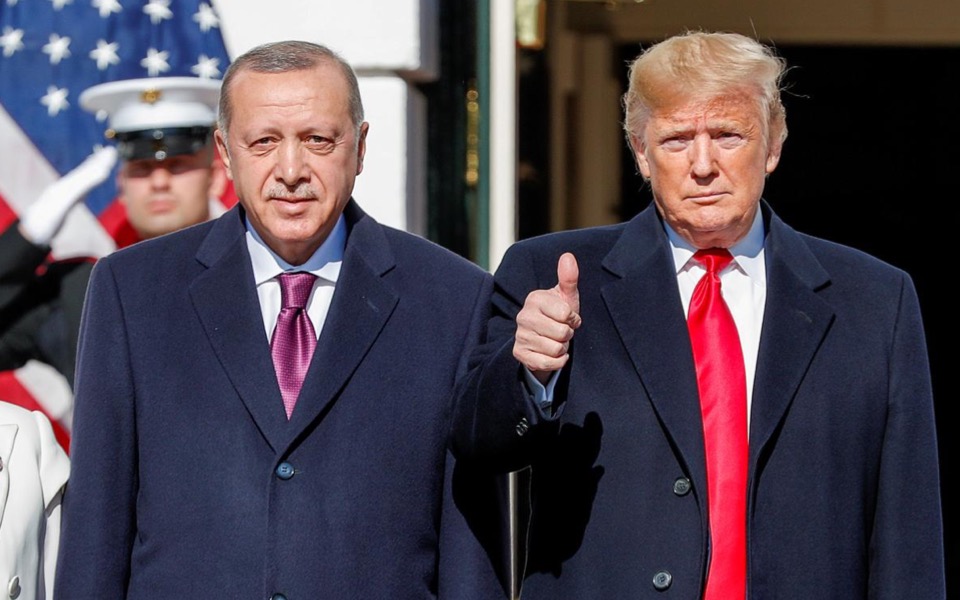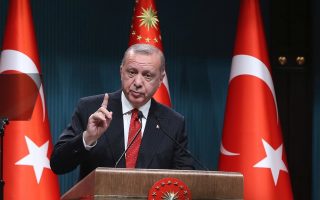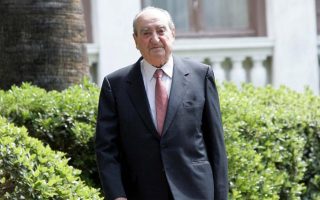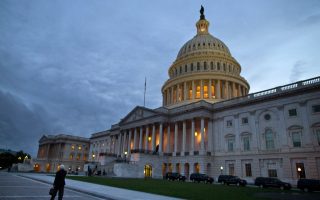Greece and its East Med, West Balkan role

The inaugural Southeast Europe & East Med conference organized by Kathimerini and the Delphi Economic Forum in Washington earlier this week aimed to present new strategies and opportunities.
An offshoot of its organizers’ decades-long expertise in American affairs, the conference brought together some of the most influential players shaping Greek-American bilateral ties today: diplomats from both countries, members of Congress, think-tank analysts and leaders of the diaspora, and not just from Greek-American organizations, but also others whose work influences American foreign policy in a broader context.
It also brought a significant delegation of Greek politicians and business representatives to Washington for the first time in what was an opportunity for the Greek side to show its ability to play the role it aspires to: a regional force of stability that will support American policy in the East Mediterranean and the Western Balkans at the level of diplomacy, defense and economic ties.
The conference, which hopes to become an annual fixture, also heard from pre-eminent American diplomats, as well as US Secretary of Commerce Wilbur Ross, who expressed optimism over the course of the Greek economy and praised the recently elected government’s reform initiatives.
Nevertheless, despite its geographical proximity to the White House, just a few blocks away, the conference seemed to go unnoticed by US President Donald Trump, even though – as Senator John Sarbanes pointed out – he is the main voice shaping American foreign policy right now.
However, coming a week after his meeting with Turkish President Recep Tayyip Erodgan and given the divisive impeachment hearings, this is hardly surprising – and particularly since the president has decimated the National Security Council, breaking from the long-standing tradition of consensus in foreign policy decision-making within the administration.
While former White House chief of staff Reince Priebus may have said that he wouldn’t read too much into Erdogan’s visit to the White House and American diplomatic circles may have stressed that the visit did not solve the issues dividing the two countries but rather attempted to give the impression of normalization, concern at the conference was widespread regarding the unpredictable relationship between the American president and his Turkish counterpart.
This was confirmed by former US ambassador to Greece Nicholas Burns, who expressed doubt as to whether Athens could rely on Trump in the event of a Turkish-Greek crisis or tension in the Eastern Mediterranean, and particularly in Cyprus’ exclusive economic zone.
He did, however, say that he believes Secretary of State Mike Pompeo is being sincere when he states that Greece is a strategic partner of the US. Burns also said that he believes Pompeo, like Secretary of Defense Mark Esper, would step up to avert a military confrontation.
Concern, however, is rife and also extends to the migration crisis and Turkey’s threats to flood Europe with hundreds of thousands of migrants and asylum seekers. Greek Ambassador to Washington Haris Lalacos noted that Athens needs some specific security guarantees from the US that will safeguard the country from a further escalation of tension, while stressing the importance of the upgraded security cooperation between Greece and the US.
In order to remain focused on its role as a stabilizing force in the region amid broader instability, Greece needs to be protected from an unpredictable Turkey. This is especially so given that Ankara is responsible for triggering even greater tension with its incursion in Syria, its stance over the refugee crisis and its role in Russia’s ambitions in the region.
With tension between the US and Turkey continuing to simmer, the American diplomatic establishment wants Greece to grab the opportunity to become a key US partner in the East Med, in cooperation with Israel and Cyprus, but also in the Western Balkans. The conference was an opportunity for the American side to hear the conditions that need to prevail for this to happen.
Katerina Sokou is a nonresident senior fellow at the Atlantic Council in Washington, DC.





